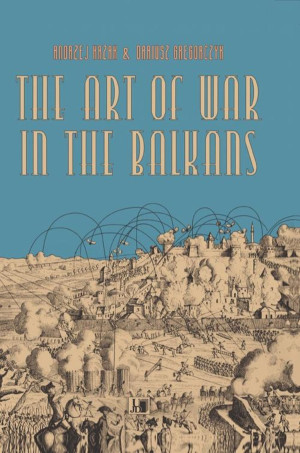
The Art of War in the Balkans
Producent:
The Art of War in the Balkans PRACA ZBIOROWA Balkan conflicts that took place at the end of the 20th century are closely
connected with numerous disputes that occurred after the end of cold war in Europe.
The aspirations to gain independence by the republics of Yugoslavian Federation opened
Pandora’s box, which led to intensive military, ethnic, social, religious and cultural
conflict in the Balkans. The words that the Balkans is particularly unstable region of
Europe were confirmed. Armed conflict that took place in the Balkans at the end of 20th
century was not something unusual. Aspirations and passions and unresolved disputes
caused another war fought, above all, between Southern Slavs.
One of the most eminent philosophers of the 20th century Karl R. Popper
(1902-1994) thought that neither science nor any other method can’t predict the course
of coming events. In one of his works entitled The poverty of historicism, he wrote:
- the course of human history, to a large extent, depends on development of knowledge;
- future development of knowledge may not be predicted using any rational and
scientific methods;
- we may not predict the future course of human history, therefore, creating theory of
historical development is not possible.
However, above disquisition does not exclude the possibility of carrying out
historical, political or social forecasts. Therefore, learning history does not come down
only to reconstruction of the past. It is something more. It may give rise to undertake
interdisciplinary research on the problems particularly important for the world in an era
of globalization.
The word history (from Greek historeo - to examine, to learn, to return in mind
to the past) is of subjective and objective meaning. Firstly, it is a reference to the events
from the past, in narrower and general sense. Secondly, it is a science about human
history in space and time. According to American historian, James Harvey Robinson,
history is everything we know about everything, everything humans have ever done,
thought, expected or felt.
Great Greek historian, Thucydides (460-396 BC) wrote in his work
Peloponnesian War that the goal of his work is, by to be regarded it as useful by
those who want to know the past and form a view on the same or similar events, which
may happen in the future.
6
The Art of War in the Balkans from the Middle Ages to the 21st century
There is a saying of Cicero (106-43 BC) historia est magistra vitae (history
is life’s teacher) and if you don’t know history, you will always be a child. Roman
historian Polybius (200-118 BC) claimed that knowledge of history prepares us to
govern the state. Therefore, the Romans used history to strengthen loyalty towards the
state and pride of its expansion.
J. W. Goethe claimed that writing history is a method of liberation from the
past. He thought that if people are able to learn history well, then history will not
repeat itself. Learning history understood in such a way would be one of basic elements
of good civic education. There is no culture without history, and without knowledge of
history, the fates of societies and nations can’t be understood.
The Balkans is one of these places which, over the centuries, has played a
significant role in the history of Europe and the world. It seems that a concept of
repeatability of events is not only what ancient philosophy of the East is characterized
by, but also many modern historiosophic theories. According to these theories,
everything comes into existence and disappears, only ruins are silent. The view of
cyclical recurrences of history can be found in Plato’s works, as well as Polybius’ works
(a thesis on cyclical development of state systems: tyranny - aristocracy - oligarchy
- democracy - tyranny etc.). The theory of repeatability of history was also used by
Giambattista Vico (spiral of history, the view on recurrence of barbarity).
In recent years, the concept of cyclicality is becoming more and more popular,
which is proven by popularity of a vision of approaching new Middle Ages. We
may also hear more and more often about coming collapse of Western civilization,
twilight of the West. It should be emphasized that the Balkans may be regarded as a
region where such repeatability is particularly evident. Bloody conflicts and unresolved
disputes determine the history of Balkan nations, dating back hundreds or even thousand
years backwards. Cyclicality of the course of history is noticeable in in such events
as: domination and collapse of powers (superpowers) and their fight (rivalry) with
direct and indirect participation of Balkan countries, for example, 13th - 19th century
- supremacy of Ottoman Porte; 19th-20th century - Balkan powder keg; the Eastern
question - a fight for influence between England, Germany, Austria-Hungary, Russia
and France; 20th century - a fight for domination by large blocs - firstly central countries
against Entente, then the Great Coalition - Axis countries,
Sklep: gandalf.com.pl
Cena:
22.75
19.11
Przejdź do sklepu